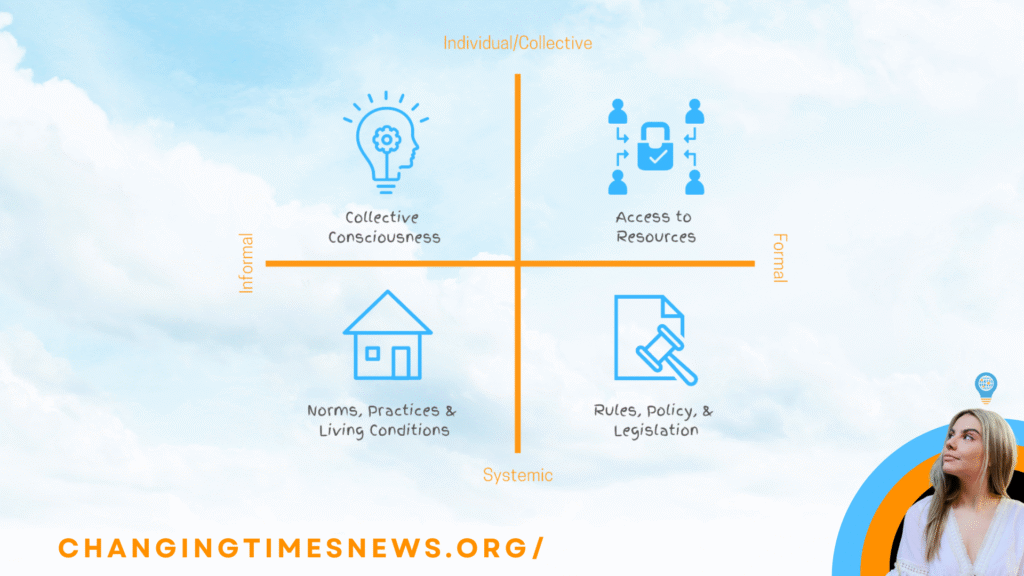In the latest episode of Changemaker Q&A, host Tiyana J pulls back the curtain on a problem that too often goes unspoken: the systemic devaluation and commodification of care. While the conversation began with a listener’s question about burnout in the social change space, the discussion quickly broadened to the root causes of the crisis—why care itself has been stripped of value in modern economies, and what that means for activists and changemakers on the frontlines.
Care Work: Essential but Undervalued
Care work—ranging from childcare and elder care to domestic labor and emotional support—has long been treated as invisible. As Tiyana points out, “under capitalism, value is only assigned to labor when it makes a direct economic contribution.” Because most care work doesn’t produce traditional surplus value, it remains either unpaid or grossly underpaid. This pattern not only entrenches gendered inequalities but also undermines the social fabric itself.
The imbalance has never been clearer than during the COVID-19 pandemic, when care workers were lauded as “essential” yet remained undercompensated and overburdened. According to the International Labour Organization, care jobs are among the fastest-growing worldwide, yet they remain some of the lowest paid, particularly for women and migrant workers.
The Profit Motive in Care
The rise of for-profit models has only deepened the problem. Private childcare and aged-care services frequently prioritize efficiency and cost-cutting over human well-being. A 2020 report by Oxfam highlighted that this market-driven approach not only exploits care workers but also exacerbates class disparities: wealthier families can afford quality private care, while low-income households are left to navigate underfunded public systems.
This dynamic also drives global inequalities. Sociologist Arlie Hochschild has described “global care chains,” where women from lower-income countries provide labor in wealthier nations—often at the expense of care in their own families and communities.
The Toll on Changemakers
For changemakers, the effects are deeply personal. Activism and social change require relentless emotional labor, long hours, and immersion in systemic injustices—all of which are intensified by a culture that treats care as secondary. As Tiyana explains, this isn’t just a matter of personal overwork: “Burnout is a systemic issue that arises from prolonged exposure to high stress, a lack of institutional support, and the emotional toll of working against deeply entrenched social injustices.”
Without systemic changes, movements risk losing some of their most committed voices to exhaustion, disengagement, and disillusionment.
Towards a Culture of Care
The solution, Tiyana argues, lies not in treating self-care as a quick fix but in embedding care into the very structures of our movements. This means reimagining work cultures to prioritize fair wages, manageable workloads, and policies that make rest and well-being non-negotiable. It also means building supportive communities, acknowledging the emotional labor of activism, and shifting cultural narratives to value care as skilled, essential labor.
“Creating a culture of care isn’t about slowing down our work,” she emphasizes. “It’s about ensuring the work we’re doing is sustainable over the long term.”


